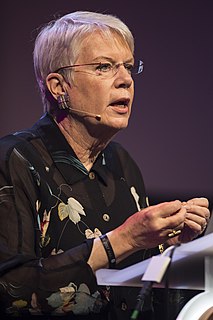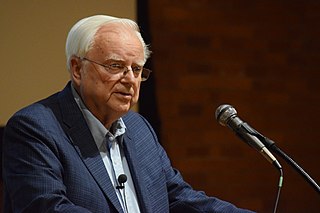A Quote by Geoffrey Rush
I dreamt of being an astronomer; I had a series of 'How and Why' books on the planets and the stars. At that stage, there were only 14 galaxies; now there are multiverses, dark matter, the nano-microscopic world of the interior of atomic structure.
Related Quotes
There are lots of cases where we know more about how the world works than we do about how we know how it works. That's no paradox. Understanding the structure of galaxies is one thing, understanding how we understand the structure of galaxies is quite another. There isn't the slightest reason why the first should wait on the second and, in point of historical fact, it didn't. This bears a lot of emphasis; it turns up in philosophy practically everywhere you look.
Henceforth the cosmos, once a swarm of blazing galaxies, each a swarm of stars, was composed wholly of star-corpses. These dark grains drifted through the dark void, like an infinitely tenuous smoke rising from an extinguished fire. Upon these motes, these gigantic worlds, the ultimate populations had created here and there with their artificial lighting a pale glow, invisible even from the innermost ring of lifeless planets.
There was a sky somewhere above the tops of the buildings, with stars and a moon and all the things there are in a sky, but they were content to think of the distant street lights as planets and stars. If the lights prevented you from seeing the heavens, then preform a little magic and change reality to fit the need. The street lights were now planets and stars and moon.
Marilyn always dreamt of being an actress. She didn't, by the way, dream of being just a star. She dreamt of being an actress. And she had always lived somehow with that dream. And that is why, despite the fact that she became one of the most unusual and outstanding stars of all time, she herself was never satisfied. When she came to New York, she began to perceive the possibilities of really accomplishing her dream, of being an actress.
We've always dreamt of a TV series and working in film. When we first sat down to seriously write 'A Little Nightmare Music,' to write something for TV was our original inspiration. But all the stuff we were writing down is not going to work on stage. We had to rewrite it so it would work on the stage.
Forty years as an astronomer have not quelled my enthusiasm for lying outside after dark, staring up at the stars. It isn't only the beauty of the night sky that thrills me. It's the sense I have that some of those points of light are the home stars of beings not so different from us, daily cares and all, who look across space with wonder, just as we do.



































